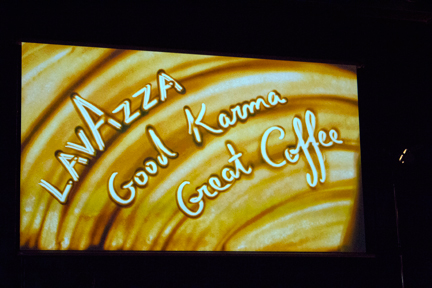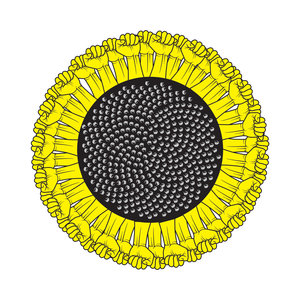¡TIERRA!, Lavazza's Responsible Choice, Part 3
 In the first two parts of this series, I wrote about the choices that business owners make in running their business. In part 1, I contrasted the choice of greed versus social responsibility, in part 2, I wrote about ¡TIERRA!, a project by Lavazza coffee to create sustainable and autonomous coffee growing communities in six countries on three continents, and today, I'm going to write about the roundtable I attended that inspired this series.
In the first two parts of this series, I wrote about the choices that business owners make in running their business. In part 1, I contrasted the choice of greed versus social responsibility, in part 2, I wrote about ¡TIERRA!, a project by Lavazza coffee to create sustainable and autonomous coffee growing communities in six countries on three continents, and today, I'm going to write about the roundtable I attended that inspired this series.
The roundtable, Partners for Sustainability, Together for a Sustainable Future at Salone del Gusto Terra Madre 2012. The roundtable was a discussion between Daniel R. Katz, founder and board chair of Rainforest Alliance, Ana Paula Tavares, executive vice president of Rainforest Alliance, Carlo Petrini, founder and chairman of SlowFood, and Giuseppe Lavazza, vice president of Lavazza.
Carlo Petrini spoke first. I have been familiar with Carlo Petrini since I discovered Slow Food back in the late '90s. This roundtable was the first time I hear him talk. He's a very smart man, committed to his cause, and he focused on what the true meaning of sustainable. An interesting point he made was about how something goes from being a viable idea to something so big, that is just talk. When it gets to this point, the idea, no matter what it is, is not sustainable. He followed that with a warning that with the finite resources we have on the planet, mass consumption, is not an option.
Next to talk were Daniel R. Katz and Ana Paula Tavares of the Rainforest Alliance. I have to admit, I didn't know much about this nongovernmental organization. I knew that their mission was to stop the wanton destruction of rainforests, but that was it. I didn't know about their certification program, which from the brief description I heard, is quite impressive. First though, something that Daniel Katz said struck me as someone who is authentic in his purpose, this is paraphrase, that he'd rather build a solution than a bridge because bridges can be burned. To me that indicates long-term thinking with the focus on the mission, not the personalities involved. Also, he mentioned that the Rainforest Alliance's larger audiences are the United States and the United Kingdom, not Europe. Hopefully, that will change since they and now working with Slow Food International.
Back to the Rainforest Alliance's certification program. Ana Paula Tavares spoke after Daniel, and one of the topics she touched was the certification program. She said that there were different specific requirements for the different types of products they certify, but a few general requirements include access to healthcare, high quality production standards, schools on the land where the producing community is located, the right of the workers to organize, and that the minum age for work is 15 years old. To me, this defines what Daniel Katz said about building a solution, and not a bridge. Having a stringent requirements is a solution for all the people involved.
Giuseppe Lavazza spoke last. As a student of gesture, I'm constantly observing people. It fascinates me, and intuitively, it helps me read people. Lavazza's gesture was the most interesting. During the roundtable, whie the others were talking, Lavazza sat there in listening intently, while pondering what was being discussed. When it came to his turn to speak, he spoke with pride about the history of Lavazza and their commitment to social responsibility. His warm smile, his bright eyes and animated gesture, reinforced his genuine commitment to ¡TIERRA!. When some challenges were presented to him about the future direction of sustainability, especially in Africa, he sat listening intently again, and I'm convinced he took these challenges to heart.
All in all, this was a fascinating discussion to me. I learned a lot since I do have a keen interest in socially responsible business practices. Now that I'm aware of the scope of ¡TIERRA!, and the challenges that exist, I'll be following this project to see how it progresses, and to see if Lavazza caries on the sentiment expressed by Luigi Lavazza in 1935, "I don’t want to be part of a world that destroys Nature’s treasures.”
Time will tell, and so will social media.
